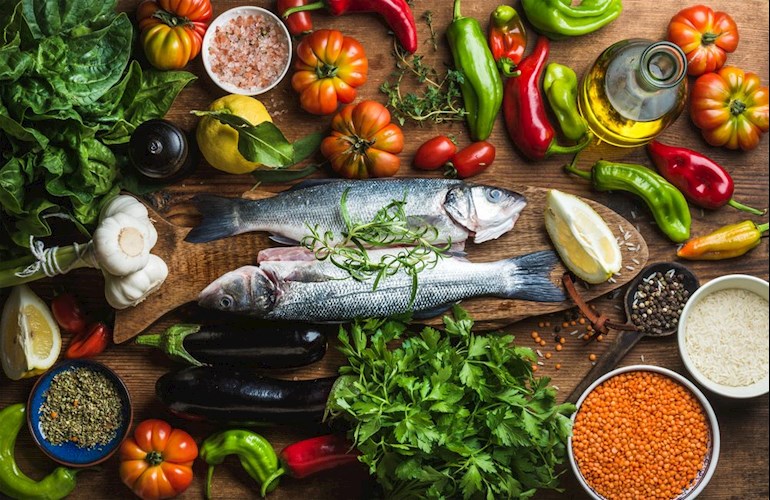BY ALANA KESSLER
Diet for Reducing Inflammation, Supporting Gut Health in Lupus Patients: A Nutritionist’s View
More and more I am humbled at the connection between the microbiome and immunity. We are continuing to learn daily how our health is connected with the relationship we have with the world around us and how we process our environment.
I personally have someone in my circle with systemic lupus erythematosus (SLE) and was privy to the manner in which it wreaked havoc on her life. She expressed to me that this “invisible illness” created a sense of shame and despair in the way it can feel like it steals the life from you.
Science is making strong headway in understanding the onset and progression of SLE. The ideology of the holistic body as a cause and treatment of disease is becoming more and more mainstream and can’t be ignored, especially in a disease that affects multiple organ systems with a variety of symptoms and manifestations.
A recent study strongly linked lupus to imbalances in the gut microbiome — the delicate balance of bacteria that live in the gut — which we know is affected by both diet and lifestyle factors. Food is so important, but so is managing life from a place that doesn’t trigger the sympathetic nervous system’s flight or fight response. When we do live from a place of stress, the hormones secreted can put extra pressure on the adrenals and eventually contribute to the slow decline of immunity due to gut microbiome imbalances secondary to nervous system overstimulation.
The role diet plays in SLE is two-fold. Because lupus is an autoimmune disease by nature, understanding the root cause is just as important as treating the debilitating symptoms because it can influence the progression of the disease.
In a 2018 article published in the Journal of Experimental and Therapeutic Medicine, the authors reported, “The outstanding role that food plays is sustained not only by its nutritional value, but also by its capacity to modify the structure and function of the gut microbiota.”
Below are some helpful diet guidelines to support a healthy gut microbiome and reduce inflammation:
With a stable disease, a diet rich in polyunsaturated fatty acids and anti-inflammatory omega-3 fatty acids can help prevent inflammation. Food sources include fish oil, olive oil, flaxseed oil, salmon, tuna, sardines, and herring. Krill oil, which is an algae, is considered superior, and flaxseed has been shown to aid in renal function.
Moderate protein intake to support renal function
Fiber from phytoestrogens and vegetables has been shown to decrease metabolic syndrome and inflammation, but water intake must be adequate to avoid nutrient malabsorption.
Adequate vitamin C, E, and A from sources such as orange juice, tangerines, papaya, and broccoli, carrots, pumpkins, sweet potatoes, and liver
B complex helps with fat metabolism and clinical symptoms, and can be found in red meat, fortified cereals, chicken, nuts, eggs, bananas, and avocados.
Decreasing the amount of the minerals zinc (found in milk, soybeans, and spinach) and sodium (less than 3 grams per day) in the diet can relieve symptoms.
Increase selenium for improved adrenal function. Sources are found in nuts, whole cereal, and eggs.
Curcumin (turmeric)
Ultimately, personalization of the diet is important for anyone managing SLE. The overarching conclusion is that a general low-calorie diet with an emphasis on antioxidant-supporting phytonutrients, essential fatty acids, fiber, and limited processed and refined foods will stimulate the body’s natural healing response and help reverse and hopefully prevent future outbreaks and flare-ups.
***
Alana Kessler, MS RDAlana Kessler, MS, RD, CDN, E-RYT, is a registered dietitian, nutritionist, weight management expert, and an accredited member of the CDR (Commission on Dietetic Registration) and the American Dietetic Association. She is also a yoga and meditation teacher, Ayurveda specialist, and the founder of the New York City-based fully integrated mind, body, and spirit urban sanctuary, BE WELL. Alana’s BE WELL ARC System and Method Mapping technique is a holistic multi-disciplinary approach to health and wellness that blends Eastern and clinical Western diet and lifestyle support to effect long-lasting behavior change.
A graduate of NYU with a BA and MS in clinical nutrition, Alana is dedicated to helping others learn how to nourish themselves, create balance, and understand their true nature through nutrition, yoga, and inner wellness. She leads Yin Yoga workshops and trainings as well as wellness retreats at international locations. Her health, fitness, and lifestyle expertise has been featured in Aaptiv.com, Droz.com, EatThis.com, RD.com, Redbook, WomensHealthmag.com, and Vogue. For more information, visit her website at bewellbyak.com.
lupusnewstoday.com/2019/04/...
See: LUpus Patients Understanding & Support (LUPUS)
